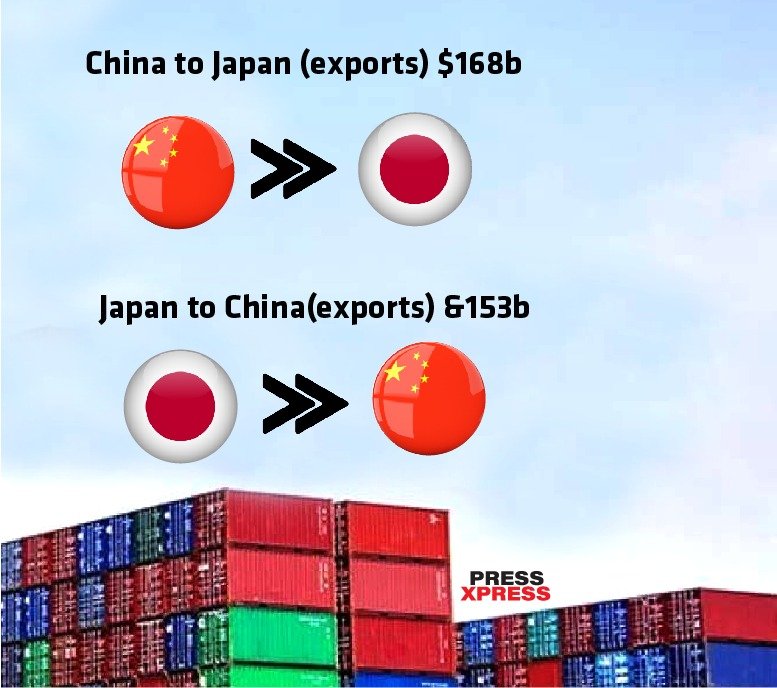The arrest of Japanese citizens will certainly “inspire” more companies to shift or reduce involvement/investment in China. The situation is serious enough that even the United States Ambasador also spoke on the matter
During the upcoming Asia-Pacific Economic Cooperation (APEC) summit being held in San Francisco; The Japanese Prime Minister Fumio Kishida is expected to rendezvous with Chinese President Xi Jinping. Top Japanese spokesperson, Chief Cabinet Secretary Hirokazu Matsuno, has already confirmed the meeting, to be held on Thursday. Provided the meeting takes place, it would be the first meeting of the two heads of state in almost a year. If this encounter unfolds later this Thursday, it’s likely that the discussion will encompass the troubling case of a detained Japanese executive from Astellas Pharma, a pharmaceutical company.
You can also read: Japanese Economic Zone Ready to Roll in 2024
The Japanese Prime minister is expected to discuss several bilateral issues. The discussion may include territorial claims and resumption of suspended food imports. However, the detention of Japanese citizens will likely be the most contentious point; particularly the arrest of Hiroshi Nishiyama.
Prominent Japanese citizen’s arrest elevates Concerns
Nishiyama is considered to be a prominent Japanese in the Japan China business relations area. He is fluent in mandarin and was a former board member of the Japanese Chamber of Commerce in China. He attended several high-profile events that included officials from both countries present. Nishiyama often spoke about his connections to officials in China; two of Nishiyama’s acquaintances spoke on the condition of anonymity. Nishiyama was detained on charges of espionage last March, with a formal arrest being carried out on October. Japan’s foreign minister, Yoshimasa Hayashi protested the arrest during a visit to his Chinese counterpart Qin Gang, last April.
The timing of this arrest amid a broader security tightening by the Chinese Government has elevated concerns. Japanese officials have expressed worries about the safety of their nationals in China. The fallout has led to a decline in Japanese citizens residing in China; as well as difficulty of staffing China based Japanese firms. According to five Japanese officials who spoke on the condition of anonymity; this apprehension has become a focal point, symbolically influencing the perception of safety for business personnel traveling to China; particularly due to Hiroshi Nishiyama’s status. Questions and queries regarding the safety of traveling to China has also increased.
Japan’s investments in China have significantly dropped.

Japan’s FDI in China fell by 30% in China this year, the opposite of Japan’s global FDI growth, which grew by a fifth. The decline is the lowest since recorded data started in 2014. This is troubling for China as Japan is its second biggest trade partner after the United States. According to a recent poll by Reuters, most Japanese companies expect China’s economy to further slowdown. Many firms are looking to shift to other markets. While a large part of this fall may be attributed to China’s “Zero Covid” policy; a major reason could be the arrests.
The Japanese Ministry of Foreign Affairs estimates that exports to China from Japan in 2021 alone was a staggering $206 billion. With imports being $165.9 billion. There are currently more than 745,411 Chinese currently living in Japan with 107,715 thousand Japanese residing in China. Therese numbers show the sheer volume of Bilateral trade relations between the two nations.
Arrest will affect both Trade and Bilateral relations
The impact of Nishiyama’s arrest extends beyond economic dimensions, affecting the number of Japanese expatriates in China. Concerns about legal troubles have led to a decline in the number of Japanese citizens residing in China, potentially reaching the lowest point since 2004. This shift is underscored by a reluctance among Japanese individuals to accept assignments in China, reflecting a broader sentiment of apprehension. A total of five Japanese citizens are currently detained in China, with a total of 17 detained since 2017. Questions and queries regarding the safety of traveling to China has also increased.
The arrest of Japanese citizens will certainly “inspire” more companies to shift or reduce involvement/investment in China. The situation is serious enough that even the United States Ambasador also spoke on the matter, “I know Japanese businesses are rethinking, right now, you can’t get people to go staff the companies in China because they’re scared of their own safety” the ambassador was quoted. Stefan Angrick, a senior economist for Moody’s Analytics based in Tokyo, also voiced his opinion, “Japan and China are two economies that are deeply intertwined with one another and are incredibly important for one another. It’s a very difficult point in time to be navigating that as a decision maker, in business or politics” he said.
Far Reaching Consequences
Despite territorial tensions, military posturing and being an Ally of the United States; Japan has enjoyed robust economic ties with China. Tensions were strained when a “decoupling” from China was implemented by the United States. Japan followed suit with close monitoring of technology exports, particularly in semiconductor technology. China’s stance on the war in Ukraine and territorial claims by China on Japanese islands also added to this quagmire. The arrest of a prominent Japanese business person by the Chinese government; that tot on the charges of espionage; will only work to straining this relation further. In a global economy already strained by war, further strains will only add to the burden of the global economy’s chances to recover.


